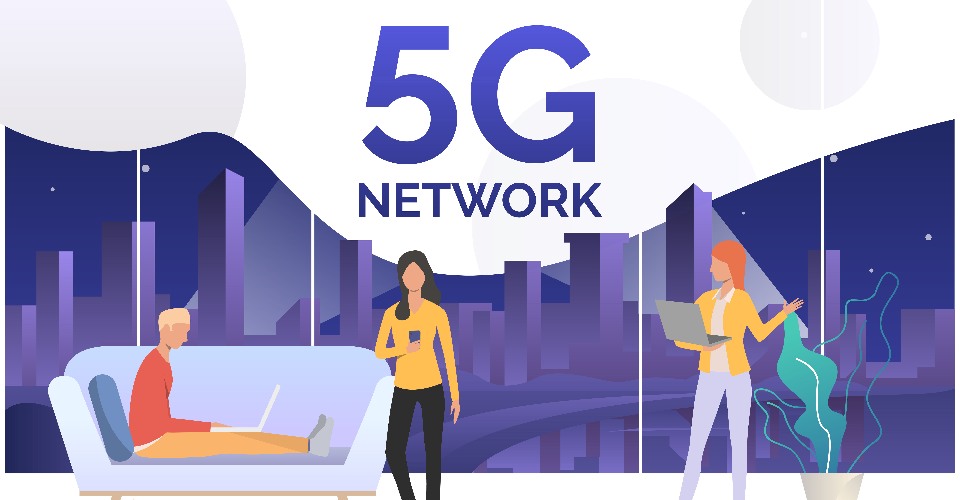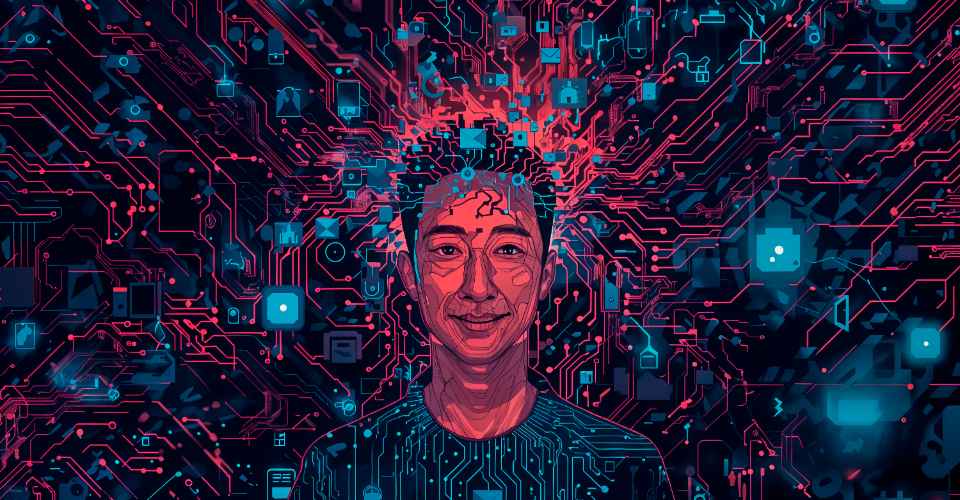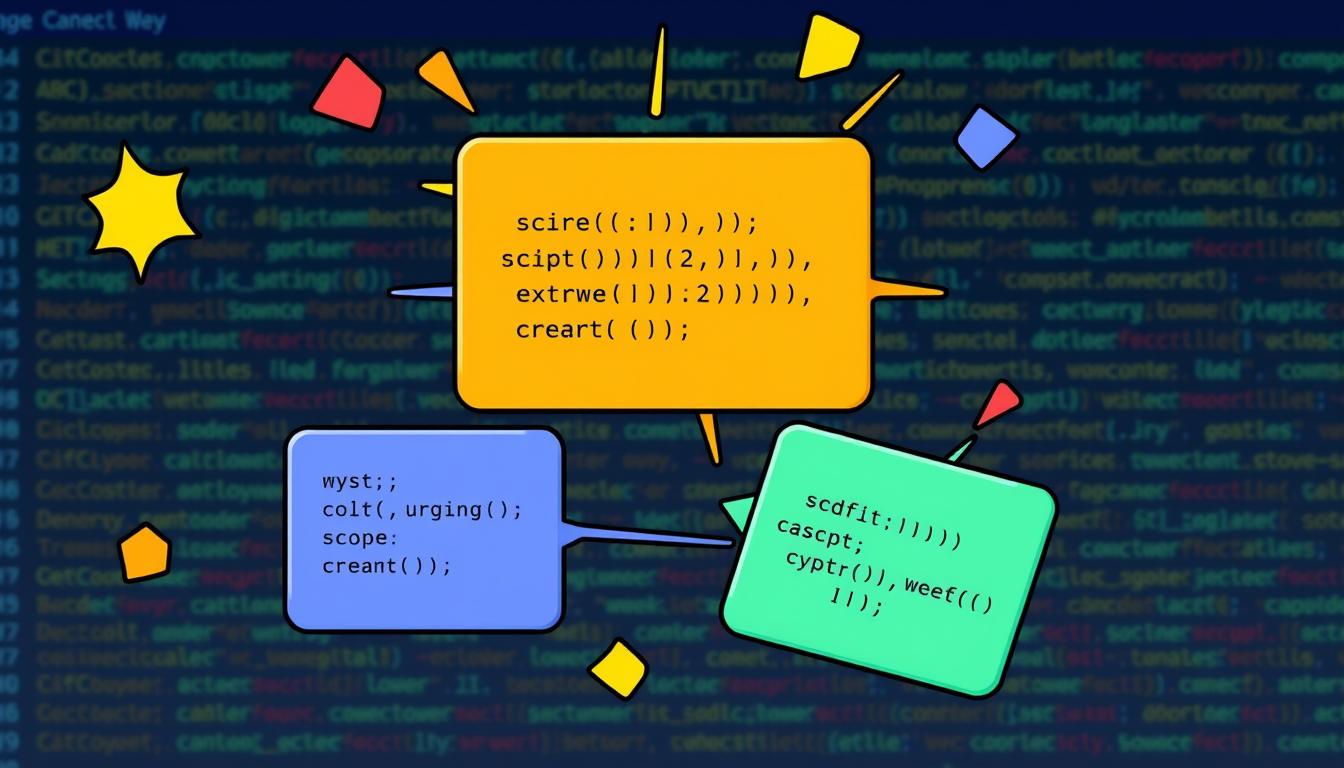The Quantum Leap in Computing
Imagine solving a problem that would take centuries for a classical computer in just a few seconds. That’s the power of quantum computing. As we step into the new age of technological advancement, quantum computing promises to break barriers and redefine the limits of what technology can achieve. Whether it’s improving artificial intelligence, enhancing cybersecurity, or revolutionizing medical breakthroughs, quantum computing is poised to reshape the world.
In this article, we will explore the incredible journey of quantum computing, its core principles, and its impact on data processing, technology, and innovation. From the basics of qubits to the world-changing applications of quantum technology, let’s dive into how quantum computing is unlocking new frontiers.
What is Quantum Computing?
At its core, quantum computing is a type of computation that harnesses the principles of quantum mechanics to solve complex problems. Unlike classical computers, which process information using binary bits (0s and 1s), quantum computers utilize quantum bits, or qubits. These qubits can represent multiple states simultaneously, thanks to two key properties of quantum mechanics: superposition and entanglement.
Key Quantum Principles:
- Superposition: A qubit can exist in both 0 and 1 states at the same time, exponentially expanding its computational power.
- Entanglement: Qubits can be entangled, meaning the state of one qubit can affect another, even at great distances, enabling faster data processing.
This unique ability to process information in parallel allows quantum computers to tackle problems that were previously unsolvable by classical machines, such as simulating complex chemical reactions, optimizing large systems, and decrypting highly secure data.
The Role of Qubits in Quantum Computing
Qubits are the heart of quantum computing, serving as the fundamental units that power quantum machines. Unlike classical bits, which can only represent a state of 0 or 1, qubits take advantage of quantum mechanical properties to represent multiple states simultaneously. This capability opens the door to exponentially faster data processing and more efficient computational power. Here’s a deeper look at the role of qubits in quantum computing and their importance in the ongoing data revolution:
1. Superposition: The Power of Multiple States
One of the key features that distinguishes qubits from classical bits is superposition. While traditional bits can only be in one state at a time (either 0 or 1), qubits can exist in a combination of both 0 and 1 states simultaneously. This ability to represent multiple possibilities at once allows quantum computers to solve problems that would take classical computers years or even centuries to process. By exploiting superposition, quantum computers can perform parallel processing on a massive scale, making them incredibly efficient at tasks such as data analysis, cryptography, and simulating molecular structures.
Statistic: According to experts, a quantum computer with just 50 qubits would outperform the most powerful classical supercomputers available today, which rely on billions of classical bits. This level of processing power is key to the data revolution across industries such as finance, healthcare, and logistics.
2. Entanglement: Linking Qubits for Accelerated Processing
Another crucial property of qubits is entanglement, which enables qubits to be intertwined in such a way that the state of one qubit can instantaneously affect the state of another, regardless of distance. This entanglement allows for highly efficient processing since changes to one qubit’s state will propagate throughout the system, facilitating faster calculations and decision-making. In quantum circuits, entanglement is used to increase computational speed and efficiency by allowing qubits to work in tandem, rather than independently, as is the case with classical bits.
Statistic: Quantum computers that utilize entanglement can achieve results in seconds that would take classical computers millennia to compute, furthering the computing evolution and significantly advancing fields such as material science, artificial intelligence, and climate modeling.
3. Quantum Gates and Quantum Circuits
Quantum gates are the fundamental components used to manipulate qubits and perform quantum calculations. These gates perform operations on qubits, similar to the role that logic gates play in classical computing. However, quantum gates operate in a multi-dimensional space, meaning they can alter the probabilities of a qubit’s state in a way that classical gates cannot. By applying quantum gates to a series of qubits, we create quantum circuits—sequences of operations that enable complex computations.
As quantum computers evolve, more efficient quantum gates and circuits are being developed to optimize processing power and reduce errors. This is vital as the world of data processing and quantum computing moves toward solving problems like optimizing global supply chains, simulating the behavior of complex proteins, and enhancing cybersecurity.
4. Quantum Error Correction: Ensuring Accuracy in Data Processing
As qubits are highly sensitive to environmental factors, errors are a common challenge in quantum computing. Quantum error correction methods are therefore critical in ensuring that quantum computations remain accurate. These methods often involve the use of multiple qubits to redundantly encode information, helping to detect and correct errors before they cause a system failure.
Advancements in quantum error correction are essential to scaling up quantum computing systems. Without effective error correction, even small mistakes could cause catastrophic results in quantum calculations. Researchers are currently working on improving these techniques to allow quantum computers to handle more qubits, which will be necessary for solving real-world problems.
5. Scaling Up: The Quest for More Qubits
A major challenge in quantum computing is scaling the technology. Quantum processors must contain an increasing number of qubits in order to handle more complex problems. While current quantum computers use systems with less than 100 qubits, future systems will need thousands, if not millions, of qubits to solve problems such as climate modeling or drug discovery.
Statistic: According to recent industry reports, the global quantum computing market is projected to grow from $1.78 billion in 2022 to $5.01 billion by 2033. This growth is driven by advancements in qubit scalability, error correction, and the potential of quantum technology to revolutionize industries. As quantum computing systems scale, they will unlock new capabilities in data processing and expand the reach of the data revolution.
6. Quantum Computing and Artificial Intelligence
Quantum computing is also expected to have a transformative impact on the field of artificial intelligence (AI). With quantum computing’s superior processing power, machine learning algorithms could be enhanced to process vast datasets at unprecedented speeds. Quantum algorithms could optimize AI models by searching for patterns and correlations in data faster and more accurately than classical computers.
This synergy between quantum computing and AI could lead to breakthroughs in fields like healthcare, autonomous systems, and robotics. By integrating quantum technology into AI models, we could see smarter, more adaptive systems that can solve problems and predict outcomes with much higher accuracy than today’s AI technologies.
7. Impact on Industries: Medicine, Energy, and Logistics
The ongoing advancements in quantum computing will have profound effects on numerous sectors. In medicine, quantum technology promises to revolutionize drug discovery by simulating molecular structures with an accuracy and speed that classical computers cannot achieve. In energy, quantum computing will improve the design and optimization of renewable energy systems, making them more efficient and cost-effective. And in logistics, quantum computers will help companies optimize supply chains, reducing costs and improving delivery times.
For example, quantum algorithms can model and simulate complex chemical reactions, a task that could take years with classical systems, but can be completed in seconds using a quantum computer. This could lead to significant advancements in developing new materials for clean energy production or even discovering life-saving drugs for diseases like cancer.
Statistic: IBM’s quantum research team has predicted that quantum computing could save the pharmaceutical industry up to $4 billion annually by speeding up drug discovery and testing.
The Future of Quantum Computing
The role of qubits in quantum computing is central to the future of data processing, as they provide the building blocks for computations far beyond the scope of classical systems. With advances in superposition, entanglement, quantum error correction, and more, the field of quantum technology is poised to address significant global challenges in industries such as medicine, logistics, and energy. As the quantum computing industry continues to grow—projected to reach $5.01 billion by 2033—the computing evolution promises to unlock new capabilities and innovations that will transform the way we process and interact with data.
Key Technologies Powering Quantum Computing
Quantum computing has been heralded as the next frontier in technology, offering unparalleled capabilities for data processing, analysis, and computation compared to traditional classical computers. With quantum technology poised to transform industries ranging from healthcare and finance to energy and transportation, understanding the key technologies powering quantum computing is essential. These innovations, such as superconducting qubits, trapped ions, topological qubits, and quantum cryptography, play a vital role in enabling quantum computers to perform calculations and simulations at speeds and scales beyond the reach of classical machines. Here are some of the primary technologies that are driving the rapid evolution of quantum computing:
1. Superconducting Qubits
Superconducting qubits are one of the foundational technologies in the development of quantum computing systems. These qubits use superconducting circuits that operate at extremely cold temperatures, near absolute zero, to maintain stable quantum states. Superconductors are materials that, when chilled to extremely low temperatures, can conduct electricity without any resistance, which makes it possible for qubits to retain their quantum states for longer periods without errors. This is critical for scaling up quantum computing systems and performing complex calculations at speeds thousands of times faster than classical computers.
The technology behind superconducting qubits has been pioneered by companies like IBM and Google, who have invested heavily in research and development to advance this technology. Superconducting qubits offer a highly promising pathway to achieving practical quantum computing. With the integration of quantum circuits—composed of a combination of superconducting qubits and quantum gates—computers powered by superconducting qubits have demonstrated tremendous progress in processing capabilities, showing an increase in both efficiency and speed in computing operations. This has huge implications for industries such as pharmaceuticals, materials science, and logistics, where quantum computers can help to simulate intricate molecular interactions, optimize systems, and solve optimization problems.
2. Trapped Ions
Trapped ions represent another key technology in quantum computing, allowing researchers and engineers to manipulate individual ions to perform quantum calculations. This technique involves trapping charged particles—ions—using electromagnetic fields and then manipulating them with lasers to perform quantum operations. The primary advantage of trapped ions is their impressive stability and precision when it comes to controlling qubits, thanks to the highly controlled environment provided by electromagnetic fields.
Startups like IonQ are at the forefront of this technology, with their advanced quantum systems enabling complex calculations and simulations that were once thought impossible. Trapped ions have several benefits over other forms of qubits, such as superconducting qubits. For example, they exhibit fewer errors during computation, are more reliable, and do not require extremely low temperatures for operation, making it more feasible for large-scale quantum computers to be developed in the future. This approach to quantum computing is expected to bring significant advancements in areas such as material science, environmental monitoring, and even optimization problems related to AI and data analysis.
3. Topological Qubits
Topological qubits represent an innovative breakthrough in quantum computing that promises to increase the reliability and scalability of quantum systems. This technology is still in its early stages but offers considerable promise for the future of quantum computing. Topological qubits leverage the properties of topology—mathematical concepts related to shapes, spaces, and connectivity—making these qubits much more resistant to errors than traditional superconducting or trapped ion qubits.
Microsoft is one of the leaders exploring the use of topological qubits in quantum computing. The company is investigating how this technology could be utilized to develop more stable, scalable quantum computing platforms. Topological qubits offer a significant advantage over other forms of qubits due to their remarkable stability when it comes to quantum operations. By reducing the error rates in quantum computations, topological qubits will be crucial for the widespread deployment of quantum computing technology. As researchers continue to refine topological qubits, this technology could hold the key to scaling up quantum systems to thousands or millions of qubits—revolutionizing industries by enabling more practical quantum applications.
4. Quantum Cryptography
Quantum cryptography is another critical technology powering the quantum computing revolution. At the heart of quantum cryptography is Quantum Key Distribution (QKD), a method of securely transmitting encryption keys using the principles of quantum mechanics. Unlike classical encryption methods, which use mathematical formulas to encode information, quantum cryptography makes use of the unique properties of quantum particles—such as superposition and entanglement—to secure communications in ways that were previously thought impossible. For example, any attempt to intercept or eavesdrop on a quantum-encrypted communication will disturb the information, alerting both parties to the presence of a security breach.
Quantum cryptography, and especially QKD, is already proving to be a game-changer in the world of cybersecurity. As quantum computing systems continue to advance, the need for more secure data transmission methods grows. Quantum cryptography will allow for ultra-secure communications, protecting sensitive information from increasingly sophisticated cyberattacks. This is crucial for industries like finance, healthcare, and government, where data security and privacy are of paramount importance.
5. Quantum Algorithms
Quantum algorithms are another key element in the quantum computing equation. Quantum algorithms are specially designed computational procedures that leverage quantum mechanics to solve problems much more efficiently than classical algorithms. Quantum algorithms can process large datasets in parallel, rapidly analyze information, and offer solutions to complex problems that would take classical computers a significantly longer time. For example, Shor’s algorithm can quickly factor large numbers, a task that is extremely difficult for classical computers and has wide-ranging implications for fields such as cryptography and number theory.
The development of quantum algorithms is a fast-paced area of research, with ongoing efforts to develop more efficient and error-resistant algorithms for a wide range of applications. As quantum computing scales up, the potential of quantum algorithms will continue to expand, bringing unprecedented capabilities in areas such as optimization problems, artificial intelligence, and drug discovery.
6. Quantum Machine Learning
Quantum machine learning is an emerging field at the intersection of quantum computing and artificial intelligence. Quantum machine learning algorithms have the potential to outperform classical machine learning methods by leveraging quantum principles to process vast datasets much more efficiently. The main advantage of quantum machine learning is its ability to simultaneously explore numerous combinations and perform complex operations that are beyond the reach of classical algorithms.
By using quantum computing to assist machine learning tasks, we can make AI models more accurate, efficient, and capable of handling larger and more complex datasets. Quantum machine learning can help industries like healthcare, finance, and scientific research, providing solutions and insights at speeds that classical computers would struggle to achieve.
7. Quantum Cloud Computing
Quantum cloud computing is rapidly gaining traction as a way to make quantum computing accessible to researchers, developers, and businesses without needing to build expensive quantum hardware from scratch. Quantum cloud services provided by companies like IBM, Google, and AWS offer access to quantum computers over the internet. This cloud-based approach removes some of the barriers to entry for quantum computing, allowing smaller companies, research institutions, and individuals to explore and experiment with quantum systems.
Quantum cloud computing represents a major step forward in democratizing access to quantum technology. With cloud services offering various quantum processors, researchers and businesses can explore new possibilities in data processing, AI applications, and optimization without needing their own quantum hardware.
The rapid development of quantum computing and its related technologies is opening new doors to the world of quantum technology. From superconducting qubits and trapped ions to quantum cryptography and quantum machine learning, these innovations represent the next leap forward in computing evolution. As quantum computing systems continue to scale up and evolve, the future of data processing, optimization, and problem-solving appears brighter than ever.
Practical Applications of Quantum Computing
Quantum computing’s potential to revolutionize industries is immense. Here are some key sectors where its impact is already being felt:
1. Drug Discovery:
Quantum computers can simulate molecular structures and predict how drugs will interact with cells, significantly speeding up the drug discovery process. This can lead to breakthroughs in medicine, particularly in the fight against diseases like cancer.
2. Financial Services:
Quantum computing can revolutionize financial modeling by processing vast datasets much faster than traditional systems. This would enhance risk analysis, fraud detection, and portfolio optimization, making financial markets more efficient.
3. Cryptography:
With the growing threat of cyberattacks, quantum computing is crucial in the development of quantum-resistant encryption methods. These will protect sensitive information from being decrypted by advanced quantum algorithms in the future.
4. Artificial Intelligence:
Quantum algorithms can accelerate machine learning, allowing AI systems to process and analyze data at unprecedented speeds. This can help develop smarter systems for various industries, including robotics, autonomous vehicles, and healthcare.
5. Climate Change Modeling:
By simulating complex environmental systems, quantum computers can improve climate modeling, helping us better understand climate change and devise strategies to combat it.
Challenges in Quantum Computing
Despite its enormous potential, quantum computing is still in its early stages, and several challenges remain:
- Decoherence and Error Rates: Qubits are extremely sensitive to their environment, and even small disturbances can cause errors. Quantum error correction techniques are being developed to address these issues, but they require additional qubits, which makes the system more complex.
- Scalability: The current quantum computers have fewer than 100 qubits. To solve real-world problems, we need to scale up to thousands or even millions of qubits. Researchers are working on new architectures to make large-scale quantum computers a reality.
- Cost: Building and maintaining a quantum computer is expensive. The infrastructure required, such as cryogenic cooling systems, adds to the cost, which could hinder widespread adoption in the short term.
- Talent Shortage: Quantum computing requires expertise in fields like quantum mechanics, computer science, and electrical engineering. The demand for professionals in these areas is far outpacing supply, limiting the field’s growth.
The Future of Quantum Computing
As quantum technology advances, we expect the following developments:
- Quantum Cloud Computing: Major players like IBM, Google, and Amazon are offering quantum services via the cloud, making quantum computing more accessible to developers, researchers, and businesses.
- Quantum Internet: The development of a quantum internet could revolutionize global communications, providing ultra-secure channels for data transfer through quantum entanglement.
- Hybrid Systems: As quantum computers continue to mature, hybrid systems that combine classical and quantum computing will emerge, providing a practical solution to tackle a wide range of problems.
A New Era of Technological Innovation
Quantum computing is set to transform how we solve complex problems and unlock the potential for breakthroughs in diverse industries. As we continue to refine the technology and tackle the challenges ahead, the future of computing looks brighter than ever. By pushing the boundaries of what’s possible, quantum computing promises to be one of the most exciting and revolutionary fields in modern technology.
As we move forward, we will witness the dawn of a new era—an era where quantum computing leads the way in data processing, scientific discovery, and innovation. It’s clear that the quantum revolution is just beginning, and its impact will continue to grow as the technology matures.



















Leave a Reply